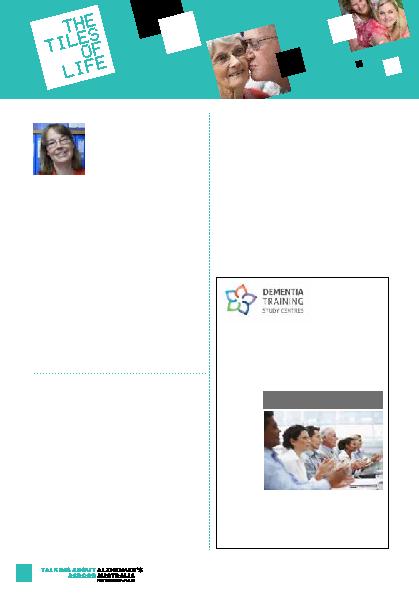
academic old age psychiatrist
who received her undergraduate
and postgraduate training,
including an MD in 1994, at
the Technical University in
as a postdoc fellow at Boston University in the
United States.
University of Western Australia. She then
took up her current position of University
of Melbourne Professor & Chair of Old Age
Psychiatry at the Department of Psychiatry,
where she is also Head of the Academic Unit
for Psychiatry of Old Age. Nicola is the Director
of the St Vincent's Aged Mental Health Service
in Kew. She currently serves as editor-in-
chief for the scientific journal International
Psychogeriatrics. Her main research focus is
early diagnosis of cognitive impairment and
intervention trials for older adults to improve
mental health outcomes.
factors can have a positive impact on the ageing
brain. Researchers around the globe are aiming
to find more specific evidence that a healthy
lifestyle could also contribute to preventing
or delaying cognitive decline and dementia.
Several positive lifestyle factors are under
investigation and amongst the most popular are
a healthy diet, cognitive activity and physical
activity. This presentation will give an overview
on the current evidence and understanding
how physical activity can improve brain health
in old age for people with or without cognitive
impairment. However despite increasing health
as is the case in many other countries, are not
performing enough physical activity during the
week. Therefore more research is needed to
identify strategies how to overcome barriers,
which are stopping people to enjoy physical
activity. One practical challenge is to identify how
older adults can safely engage in physical activity
especially if they have been sedentary for a long
time. Another important issue is how individual
preference of type and location of physical activity
could be recognised to convince more members
of the community to start and continue with a
physical activity routine. Finally strategic efforts
are necessary to translate findings from research
projects back to the community.
people with dementia
professional education and development opportunities to
assist in enhancing the skills of health professionals to
provide quality daily care to people living with dementia.
your destination for